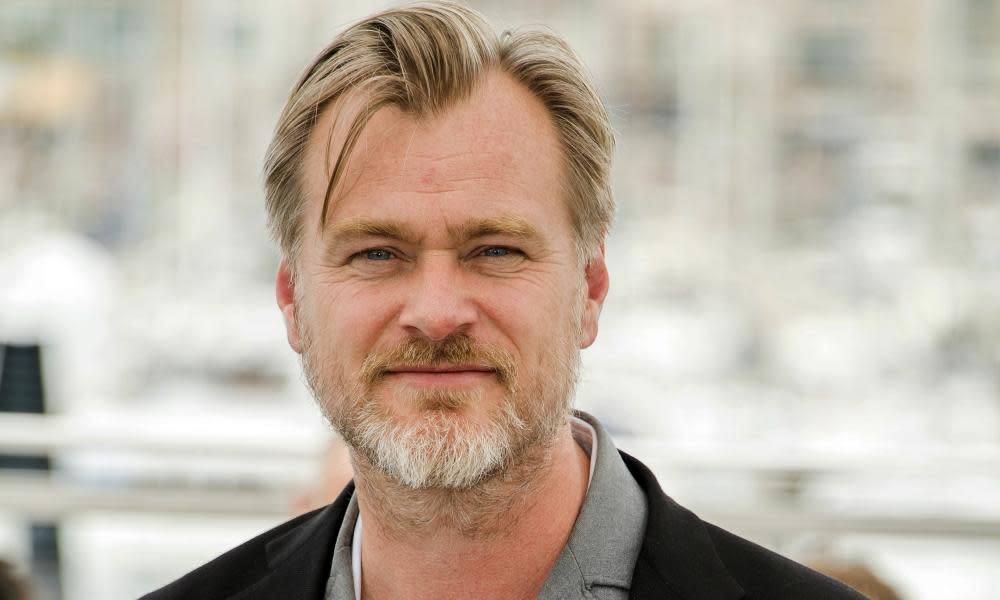Scorsese, Nolan, Pike … giants of cinema unite to save Radio 4’s film show

Radio 4 executives know their listeners are known for reacting badly when the BBC changes the station’s schedule. This time, they may have met their match. More than 100 actors, writers and film-makers, many drawn from Hollywood’s elite, have condemned the corporation’s decision to axe The Film Programme.
A-list actors such as Liam Neeson, Benedict Cumberbatch, Rosamund Pike and David Oyelowo have joined acclaimed directors including Martin Scorsese and Christopher Nolan, producer David Puttnam and numerous writers, producers, cinematographers, designers and composers, in calling for the BBC to reverse its decision to cancel the show after 17 years.
In a letter in the Observer today, they say: “To axe such a longstanding and much-loved programme represents an unacceptable diminution of the BBC’s dedication to the continuing story of film – whatever programming is intended to replace it. It is, in our opinion, short-term thinking and a mistake. The Film Programme should be celebrated, not cancelled.”
The BBC has not yet made any announcement, but sources at the corporation confirmed that the series, which is presented by Antonia Quirke or Francine Stock every Thursday afternoon at 4pm, would end.
The letter was organised by Carol Morley, the independent film-maker who directed The Falling, after she heard about the cancellation. She began canvassing last week and soon had support from a list of names that the Bafta organisers would be pleased with. “The Film Programme is crucial culturally, with two brilliant women presenters,” Morley said. “If it goes, it will leave a massive cultural hole. It isn’t out of date. It isn’t outmoded. It isn’t old-fashioned. It’s completely contemporary.”
The show’s unique appeal came from its breadth of purpose, according to Neeson, who was nominated for an Oscar for playing Oskar Schindler in Schindler’s List. “The R4 Film Programme must be maintained because it helps keep alive and celebrates actual cinema,” he said in a message. “It goes to obscure little film clubs all over the country, screens being driven by enthusiasts, festivals, retrospectives of all sorts, as well as speaking to film stars, and covers releases big and small. It is a programme about all people in and around and through cinema. Not a programme about ‘movie reviews’ … and the last one left. The axing of this programme would be a nail in the coffin not just for the world of cinema but for the BBC itself.”
Morley recalled being asked to go on the show to discuss a film that had inspired her. “I talked about Jane Campion’s first film, Sweetie. And when I was in the studio, they’d lined up Jane Campion to talk to me, which was a real surprise, and I just began to cry. It was an incredible moment for me as a film-maker to talk to these other film-makers.”
The programme’s archive was particularly valuable, she said. “The show has been able to dip into its archive in a way no other show could, reframing interviews and re-examining reputations. It has broadcast original content all the way through the pandemic.”
The corporation announced a major shake-up of its BBC Two arts and music programming in March, and is due to announce its plans for Radio 4 later this year. Hints of the future shape of the station emerged last October when the corporation invited programme-makers to tender for shows for the 7.15 pm slot currently occupied by the arts show Front Row. A show about “film and long-form visual storytelling” is also set to be commissioned for six months of the year on Friday evenings at 7.15pm, which is understood to be replacing The Film Programme.
Tom Hollander, a familiar face on television who made his breakthrough in the Robert Altman movie Gosford Park in 2001, said that cancelling the show “at a time of general retrenchment in the film industry” was “very sad news”.
“Film is still the great art form of the recent 20th century,, isn’t it?” he said. “And still deserves 28 minutes a week which go deeper than the latest press release. It was threatened by TV in the 50s and is again now by the streamers. Don’t stick your knife in too deep, BBC!”
He went on: “Post-pandemic, as people recover their lives, perhaps they will tire of their sofa drool and the 48-hour shaggy-dog stories of the [streaming services] and long to return to the format that has a beginning, a middle and an end in roughly 90 minutes, and time for a chat afterwards. Too sad. Don’t do it BBC.”
Related: BBC cancels long-running Film review show
Nolan, director of blockbusters from Tenet and Inception to Dunkirk and The Dark Knight, released a statement with his wife Emma Thomas, who is also a film-maker: “As longtime listeners of The Film Programme who have enjoyed, learned from and sometimes contributed to the subjects explored, we are very sad to hear this singular forum for the in-depth discussion of all aspects of the movies will be gone.”
The BBC said it was “launching a new Radio 4 film programme later this year which will do even more to explore the expanding universe of cinema and screen”. A spokesperson said “the show will explore the contemporary and historical – digging deep into the relationship between past and present – with close reading and analysis. It will continue to feature serious in-depth discussion with actors, writers, directors and critics.”

 Yahoo News
Yahoo News 
